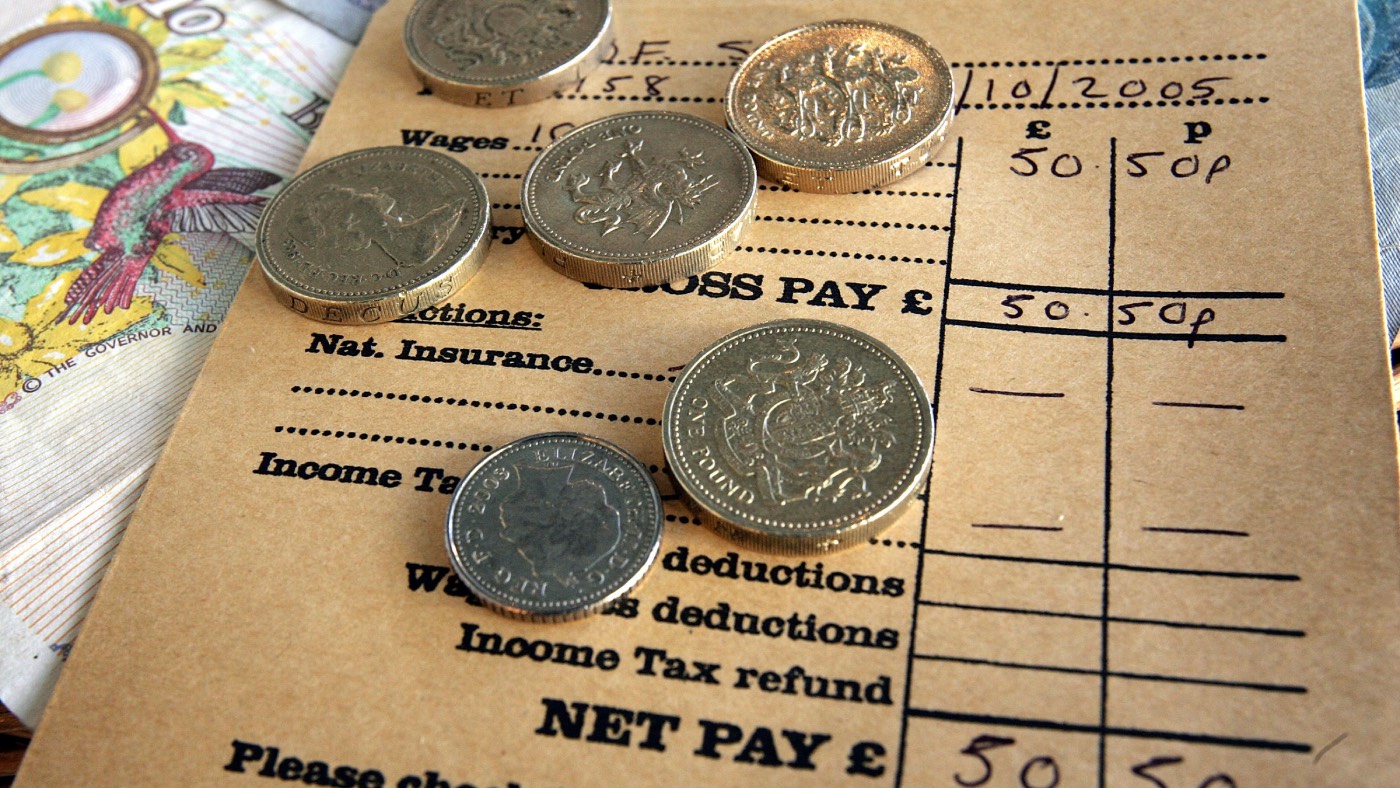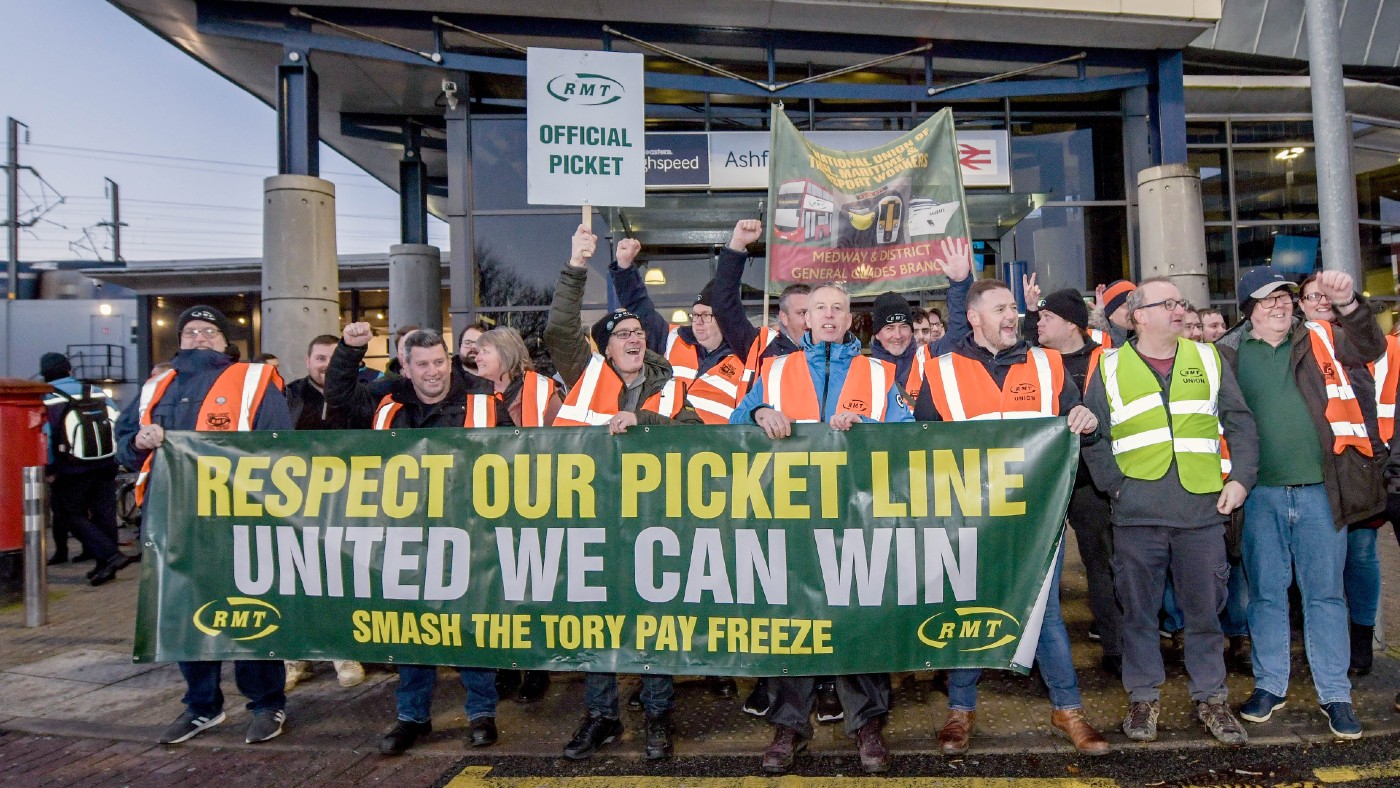Average wages above their pre-financial crisis level
Resolution Foundation says weekly wages would have been £141 higher without crash

A free daily email with the biggest news stories of the day – and the best features from TheWeek.com
You are now subscribed
Your newsletter sign-up was successful
Average weekly wages in the UK have reached their highest levels since before the economic crisis.
Weekly pay reached £512 in the three months to December. Adjusting for inflation, this is the highest since March 2008.
The Guardian describes it as a “significant moment after a lost decade for British workers” but pundits and organisations have been quick to put the news in perspective.
The Week
Escape your echo chamber. Get the facts behind the news, plus analysis from multiple perspectives.

Sign up for The Week's Free Newsletters
From our morning news briefing to a weekly Good News Newsletter, get the best of The Week delivered directly to your inbox.
From our morning news briefing to a weekly Good News Newsletter, get the best of The Week delivered directly to your inbox.
Frances O’Grady, the general secretary of the TUC, said: “Today’s wages figures are nothing to celebrate after a decade of terrible wage growth.”
The Resolution Foundation welcomed the news but calculated that wages would have been about £141 per week higher if the pre-crisis trend for wage growth had continued.
“The fact that is has taken 12 years to get to this point shows what a living standards disaster our pay packets have been,” said a spokesperson.
John Philpott, the director of the Jobs Economist consultancy, said: “Employees can be said only to have limped back to their pre-crisis pay level.”
A free daily email with the biggest news stories of the day – and the best features from TheWeek.com
“There's always a half-full or a half-empty angle on wage increases,” said the BBC’s economics correspondent, Andy Verity.
He dug into the maths of the news, explaining: “The average wage excluding bonuses is now £511.61. In March 2008, the average wage would have bought you £510.96 (in 2019 prices). In other words you are 65p better off than you were - 12 years ago.”
City AM says the annual rate of wage growth has slowed in recent months from a peak growth rate of 3.9% between May and July 2019. It dropped to 3.2% between August and October, and now the rate is less than half that.
Nevertheless, analyst Chris Beauchamp welcomed the wages milestone, saying it “will be heralded as a new dawn for the British workforce”.
Combined with healthy job figures the news boosted the pound after it had slipped below $1.30 in early trading after the UK’s warning to the European Union in trade deal talks. Sterling then rose 0.28% to stand at $1.3039.
–––––––––––––––––––––––––––––––For a round-up of the most important business stories and tips for the week’s best shares - try The Week magazine. Start your trial subscription today –––––––––––––––––––––––––––––––
-
 Quiz of The Week: 14 – 20 February
Quiz of The Week: 14 – 20 FebruaryQuiz Have you been paying attention to The Week’s news?
-
 The Week Unwrapped: Do the Freemasons have too much sway in the police force?
The Week Unwrapped: Do the Freemasons have too much sway in the police force?Podcast Plus, what does the growing popularity of prediction markets mean for the future? And why are UK film and TV workers struggling?
-
 Properties of the week: pretty thatched cottages
Properties of the week: pretty thatched cottagesThe Week Recommends Featuring homes in West Sussex, Dorset and Suffolk
-
 Why au pairs might become a thing of the past
Why au pairs might become a thing of the pastUnder The Radar Brexit and wage ruling are threatening the 'mutually beneficial arrangement'
-
 Fastest UK wage rise in 20 years fails to match inflation
Fastest UK wage rise in 20 years fails to match inflationSpeed Read Widening gap between private and public sector wages is also stoking anger among striking workers
-
 Why real wages have suffered ‘their sharpest fall on record’
Why real wages have suffered ‘their sharpest fall on record’Business Briefing Even pay rises aren’t preventing workers from feeling worse off – and that’s a big problem
-
 Labour shortages: the ‘most urgent problem’ facing the UK economy right now
Labour shortages: the ‘most urgent problem’ facing the UK economy right nowSpeed Read Britain is currently in the grip of an ‘employment crisis’
-
 Will the energy war hurt Europe more than Russia?
Will the energy war hurt Europe more than Russia?Speed Read European Commission proposes a total ban on Russian oil
-
 Will Elon Musk manage to take over Twitter?
Will Elon Musk manage to take over Twitter?Speed Read The world’s richest man has launched a hostile takeover bid worth $43bn
-
 Shoppers urged not to buy into dodgy Black Friday deals
Shoppers urged not to buy into dodgy Black Friday dealsSpeed Read Consumer watchdog says better prices can be had on most of the so-called bargain offers
-
 Ryanair: readying for departure from London
Ryanair: readying for departure from LondonSpeed Read Plans to delist Ryanair from the London Stock Exchange could spell ‘another blow’ to the ‘dwindling’ London market